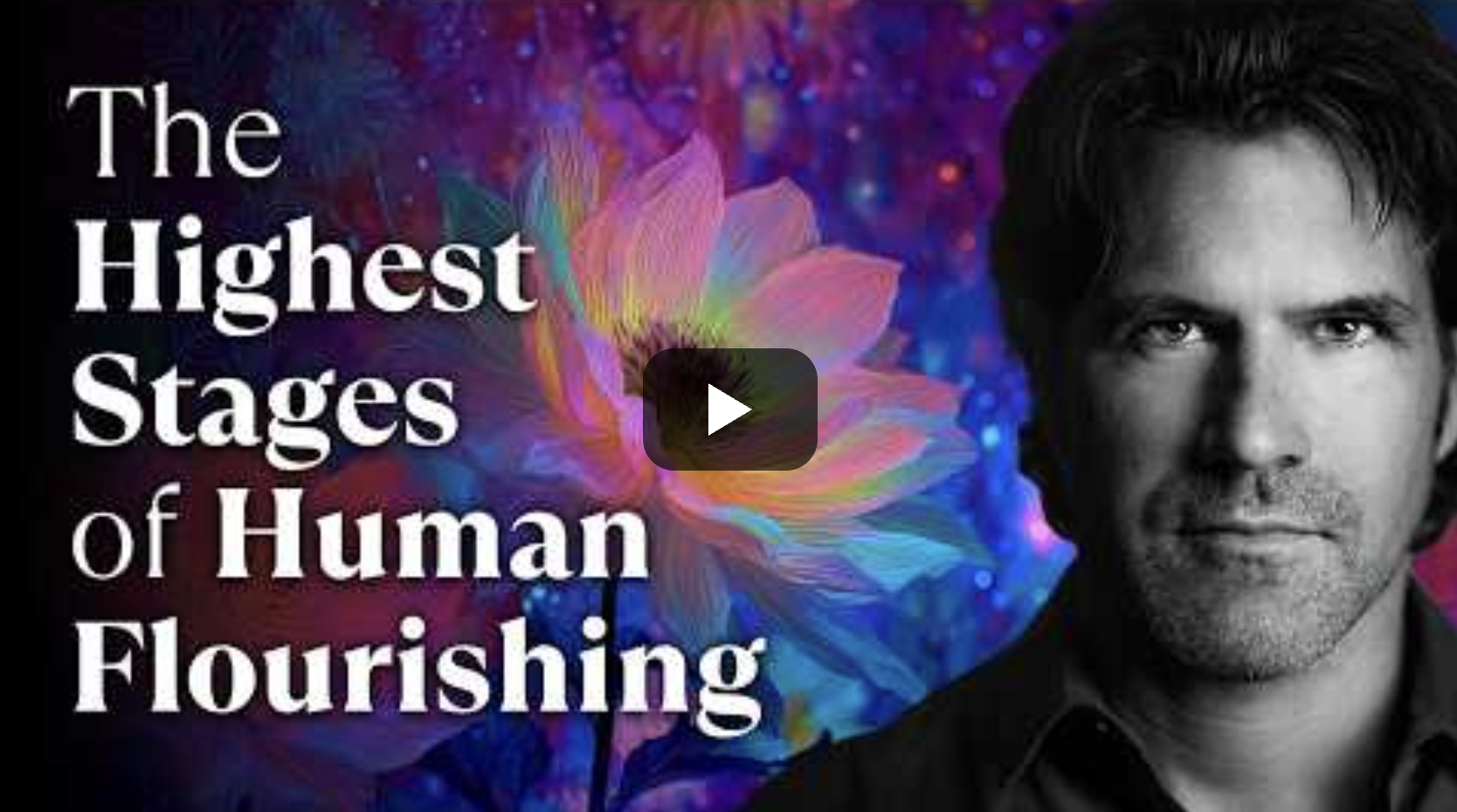
Integral Edge
Emerging perspectives on politics, science, and culture.
Upcoming Talks & Interviews
Live talks are every 2nd and 4th Wednesday of every month.
10 am PT, 1 pm ET.
Live episodes hosted on Integral Life.
Past episodes viewable on YouTube and Spotify
Dec 10: The Meaning Crisis:
Why We're Losing Our Minds
Jan 28:
Awareness Has a Body — Do You?
Why spiritual practice collapses without embodiment
with Miles Kessler
Jan 14:
What Does Food Have to Do with Integral Theory?
A radical new approach to weight loss, healthly eating, and a diet to help you live (almost) forever.
with Jeffrey Siegal, author of Eating 2.0: How to Eat Confidently in an Ultraprocessed World
Most Recent
STAGES: Cracking the Code of Human Development,
Part 1
Watch or Listen on Integral Life
Spotify
In this conversation, Keith Martin-Smith and Alexander Love dive deep into Terry O’Fallon’s revolutionary Stages model, a developmental framework that cuts through the noise of content to reveal the underlying structure of how consciousness evolves. Unlike the rigid hierarchies that plague most developmental theories, this approach treats growth as an unbroken fabric of becoming—twelve developmental waves flowing across three distinct tiers of reality perception.
Redefining the Masculine (Without Losing the Man)
Watch or Listen on Integral Life
Here we explore the modern crisis of masculinity and offers a powerful framework for reclaiming the healthy strengths of traditional, modern, and postmodern masculine expressions. Rather than choosing between power and empathy, discipline and vulnerability, Keith shows how wholeness means learning to embody all of them—at the right time, in the right way.
The End of America?
How the Founders' Genius Is Breaking Down (And What We Can Do About It)
Watch or Listen on Integral Life
Can America still save itself — or is collapse inevitable? Drawing lessons from history, developmental psychology, and the meta-crisis, Keith explores why systems built on “enlightened self-interest” are faltering… and what kind of leadership could restore the balance.
STAGES: Cracking the Code of Human Development,
Part 2
Watch or Listen on Integral Life
Keith Martin-Smith and Alexander Love explore Terry O'Fallon's STAGES model of human development, focusing on the rarely-discussed MetAware tier where transpersonal awareness becomes a structural feature of consciousness, leading to the dissolution of boundaries and recognition that all meaning is
Past Episodes
How Can DEI Survive (and should it)?
The Shadow of Trump
Watch or listen on Integral Life.
In this powerful and often provocative dialogue, psychotherapist and developmental theorist Kim Barta joins Keith Martin-Smith for a deep dive into the psychological and developmental dynamics surrounding one of the most polarizing figures of our time: Donald Trump.
Watch or listen on Integral Life.
In this wide-ranging, courageous, and deeply developmental exploration, Keith Martin-Smith tackles one of the most polarizing topics in contemporary culture: Diversity, Equity, and Inclusion. Tracing the historical evolution of DEI from its civil rights roots to its present-day institutional complexity, Keith examines how good intentions have often been overtaken by ideological rigidity, performative rituals, and empirical blind spots.
Becoming Whole in a Divided World
Watch or Listen on Integral Life
Join Keith and David Arrell in this timely and deeply reflective conversation as they offer practical wisdom, inspiring perspectives, and genuine hope for navigating — and ultimately transcending — the divisions that mark our contemporary moment.
How We Lost the Art of Connection
Watch or Listen on Integral Life
In this insightful episode of Integral Edge, Keith Martin-Smith sits down with Michael Porcelli, founder of MetaRelating, to explore the nuanced dynamics of human communication in relationships, organizations, and across cultures. They delve into why conversations so often go off the rails, the hidden cultural dimensions that shape our communication styles, and how to cultivate shared reality even amid intense conflict.
About Integral Edge
Welcome to a world on the edge.
AI is rewriting the rules. Politics are more polarized than ever, with the far right and left in an endless clash. The metacrisis looms, late-stage capitalism is unraveling, DEI is evolving, and strongmen are rising once more.
But that’s just the beginning.
This podcast takes an integral look at the forces shaping our reality—from cutting-edge neuroscience and biohacking to cryptocurrency, global economics, and the ancient wisdom of awakening, mindfulness, and embodiment.
Keith Martin-Smith brings a deep, multi-perspective lens to the chaos, cutting through the noise to find what actually matters.
This isn’t just another commentary on the world. It’s a guide to seeing—and living—beyond the divide.
Keith Martin-Smith is an author, executive coach, and lifelong explorer of human potential.






